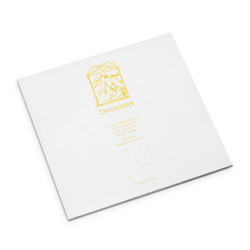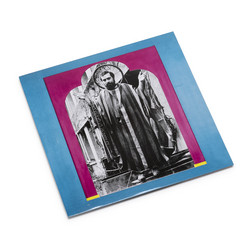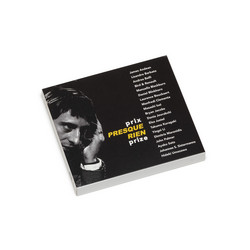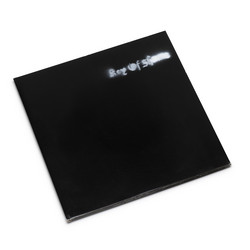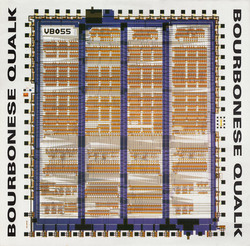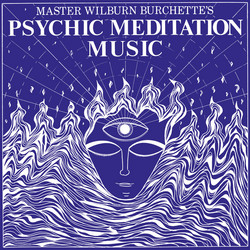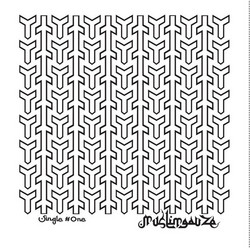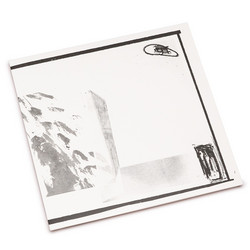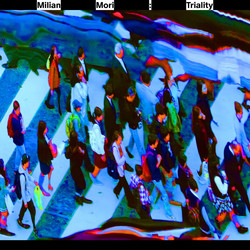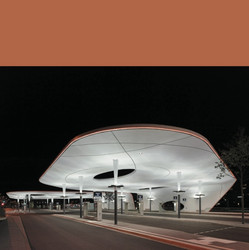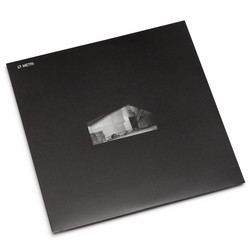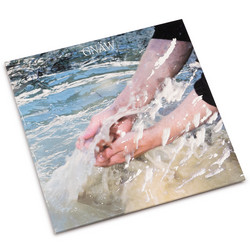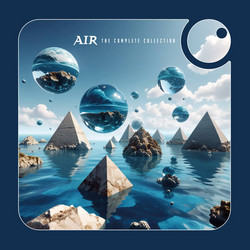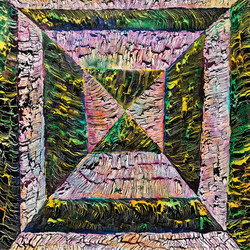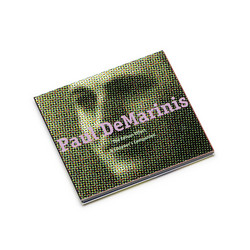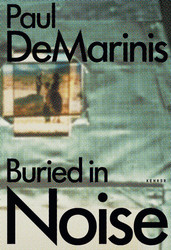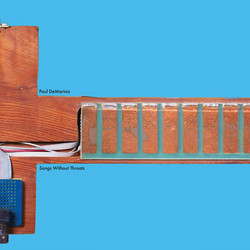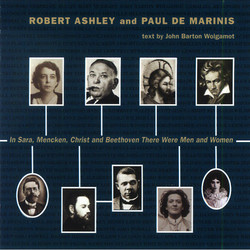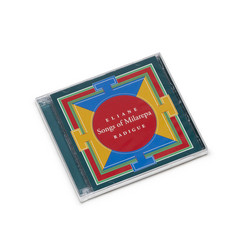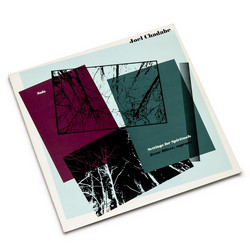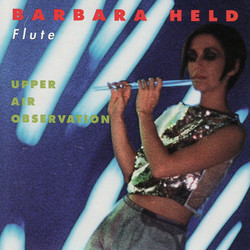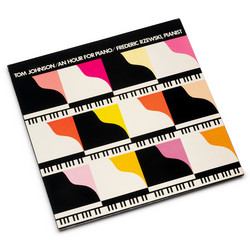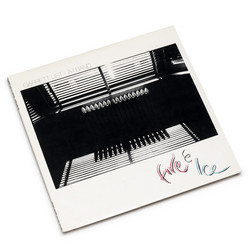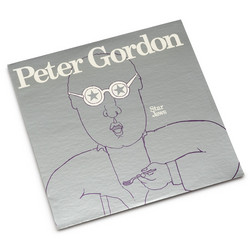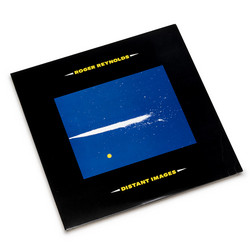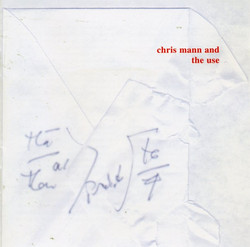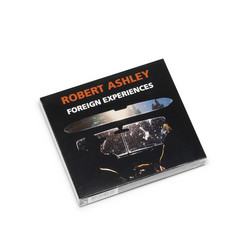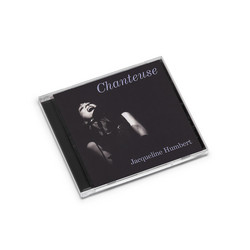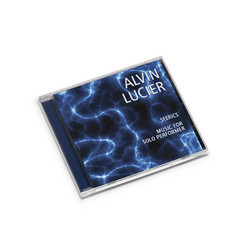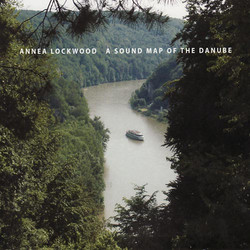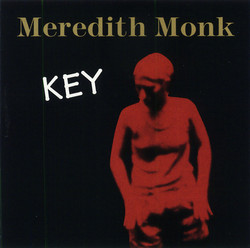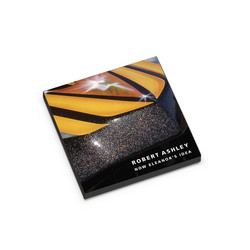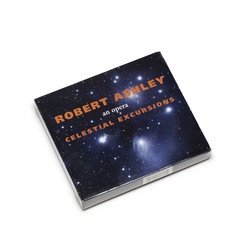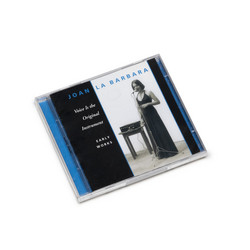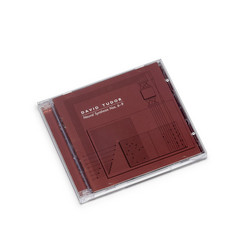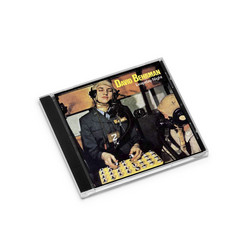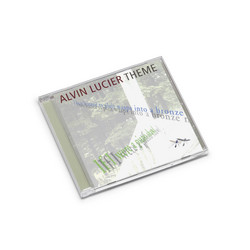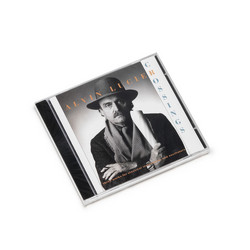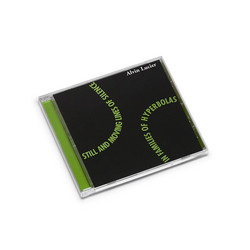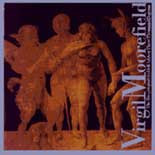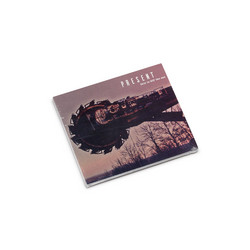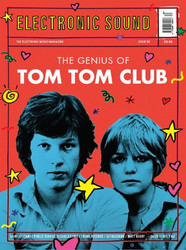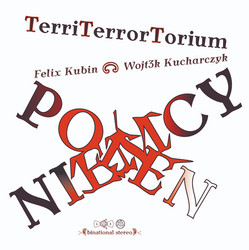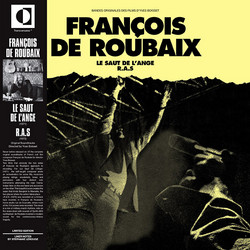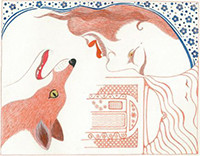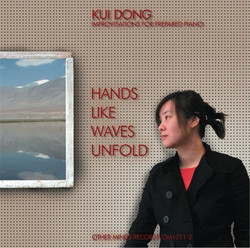1
2
3
File under: Experimental
Paul DeMarinis
Music As A Second Language
2019 Repress. Speech melodies extracted from sources as various as language instruction recordings, hypnotists and televangelists are re-synthesized and applied to digital musical instruments, becoming eerily beautiful, "the singing of voices more ancient than language." Performed by Paul DeMarinis
Hidden beneath speech's words and music's melodies I hear the singing of a voice more ancient than language. Brain's secret convulsions making muscles articulate, shaking the world with a song now lost to us except perhaps in laughter, giving birth at last to a duality of sound and meaning. Now we can write or read, compose or listen, speak and converse even about our words themselves. No longer are we aware that as we speak our voices rise and fall, following the deeper contours of speech melodies that prefigure our sense and our meanings. Even our music ceased long ago to sing these melodies, following instead the steady course of harmonic progression. Still, as we read a text, we must reconstruct the melodies of the writer to grasp the meaning. Still, we code our feelings in the melody of our speech. And still, as our leaders talk, hearing not the words but the music, we sing our quiet selves into a sleep of understanding. The whistles of the birds in our nose, the creaking door which closes a phrase, the measured pause which precedes a two-beat putdown – all these underlie the choice and order of our words. These are the ghosts in grammar's basement.
In many of my recent songs for synthesized voice I have treated speech melodies as musical material. By a process of computer analysis and resynthesis I extract the melodic line of spoken language, involve it in a variety of compositional transformations, and apply the result to digital musical instruments. Along the way, the original voice becomes more or less disembodied, but retains much of the original spirit and meaning. With the computer analysis model I can alter voicing – changing the speech into drones of whispers, articulation rate – speeding or slowing the speech independent of pitch, as well as a variety of other effects, many of which sound unfamiliar but agree with the kinematics of the vocal tract. As I compose, I listen and I think. I choose vocal sources which interest me, particularly the voices of evangelists, hypnotists and salesmen because of their great confidence and enthusiasm.
— Paul De Marinis
Hidden beneath speech's words and music's melodies I hear the singing of a voice more ancient than language. Brain's secret convulsions making muscles articulate, shaking the world with a song now lost to us except perhaps in laughter, giving birth at last to a duality of sound and meaning. Now we can write or read, compose or listen, speak and converse even about our words themselves. No longer are we aware that as we speak our voices rise and fall, following the deeper contours of speech melodies that prefigure our sense and our meanings. Even our music ceased long ago to sing these melodies, following instead the steady course of harmonic progression. Still, as we read a text, we must reconstruct the melodies of the writer to grasp the meaning. Still, we code our feelings in the melody of our speech. And still, as our leaders talk, hearing not the words but the music, we sing our quiet selves into a sleep of understanding. The whistles of the birds in our nose, the creaking door which closes a phrase, the measured pause which precedes a two-beat putdown – all these underlie the choice and order of our words. These are the ghosts in grammar's basement.
In many of my recent songs for synthesized voice I have treated speech melodies as musical material. By a process of computer analysis and resynthesis I extract the melodic line of spoken language, involve it in a variety of compositional transformations, and apply the result to digital musical instruments. Along the way, the original voice becomes more or less disembodied, but retains much of the original spirit and meaning. With the computer analysis model I can alter voicing – changing the speech into drones of whispers, articulation rate – speeding or slowing the speech independent of pitch, as well as a variety of other effects, many of which sound unfamiliar but agree with the kinematics of the vocal tract. As I compose, I listen and I think. I choose vocal sources which interest me, particularly the voices of evangelists, hypnotists and salesmen because of their great confidence and enthusiasm.
— Paul De Marinis
Details

